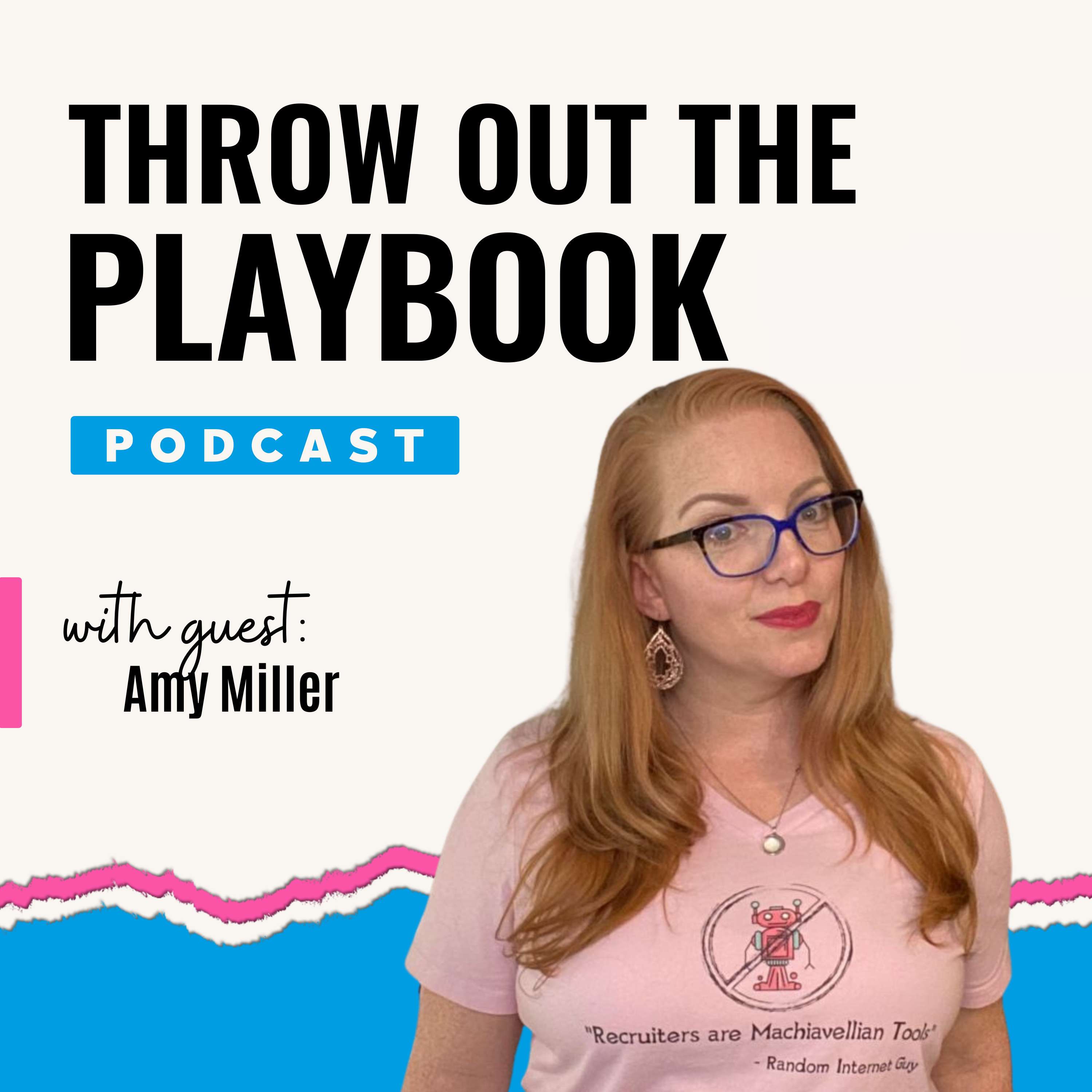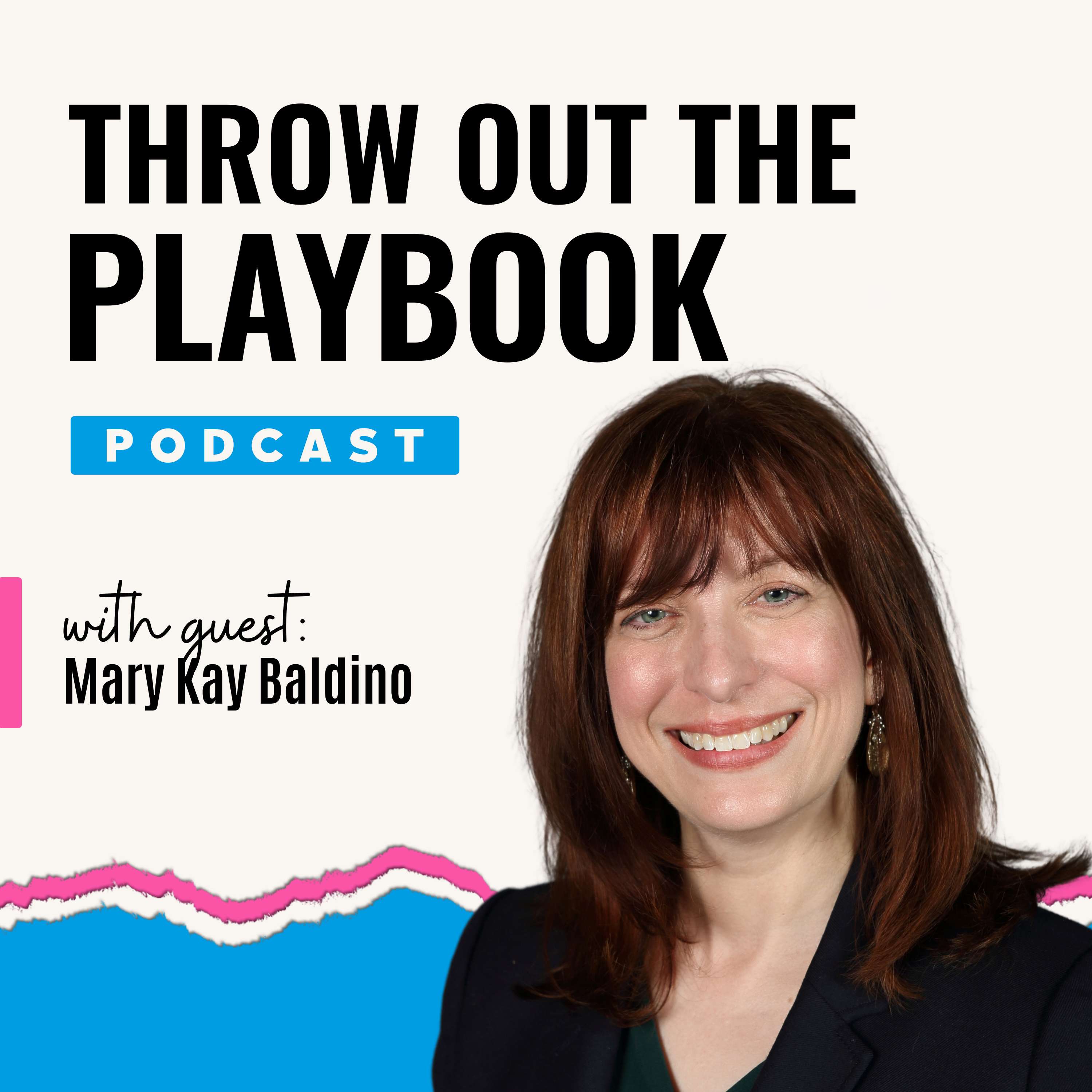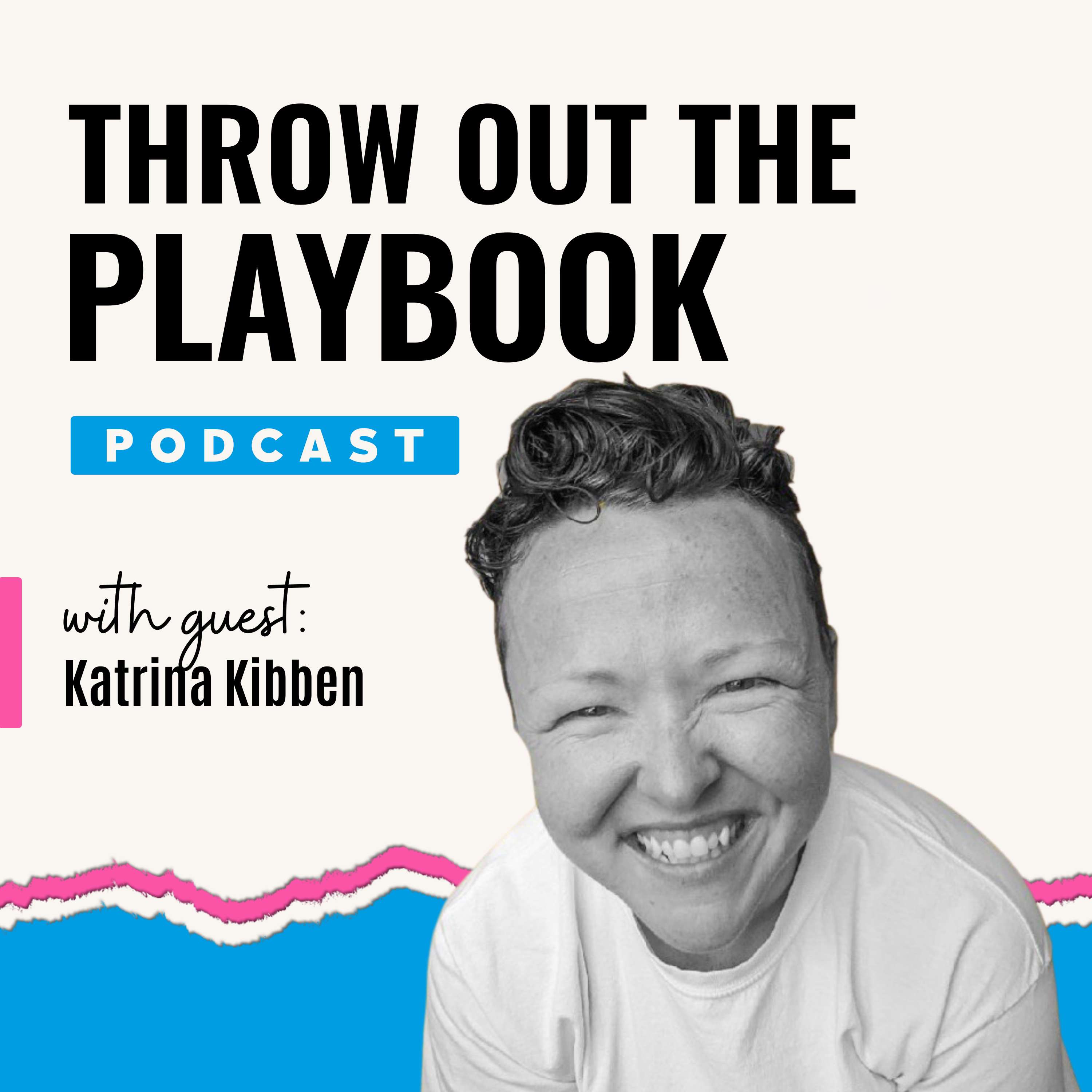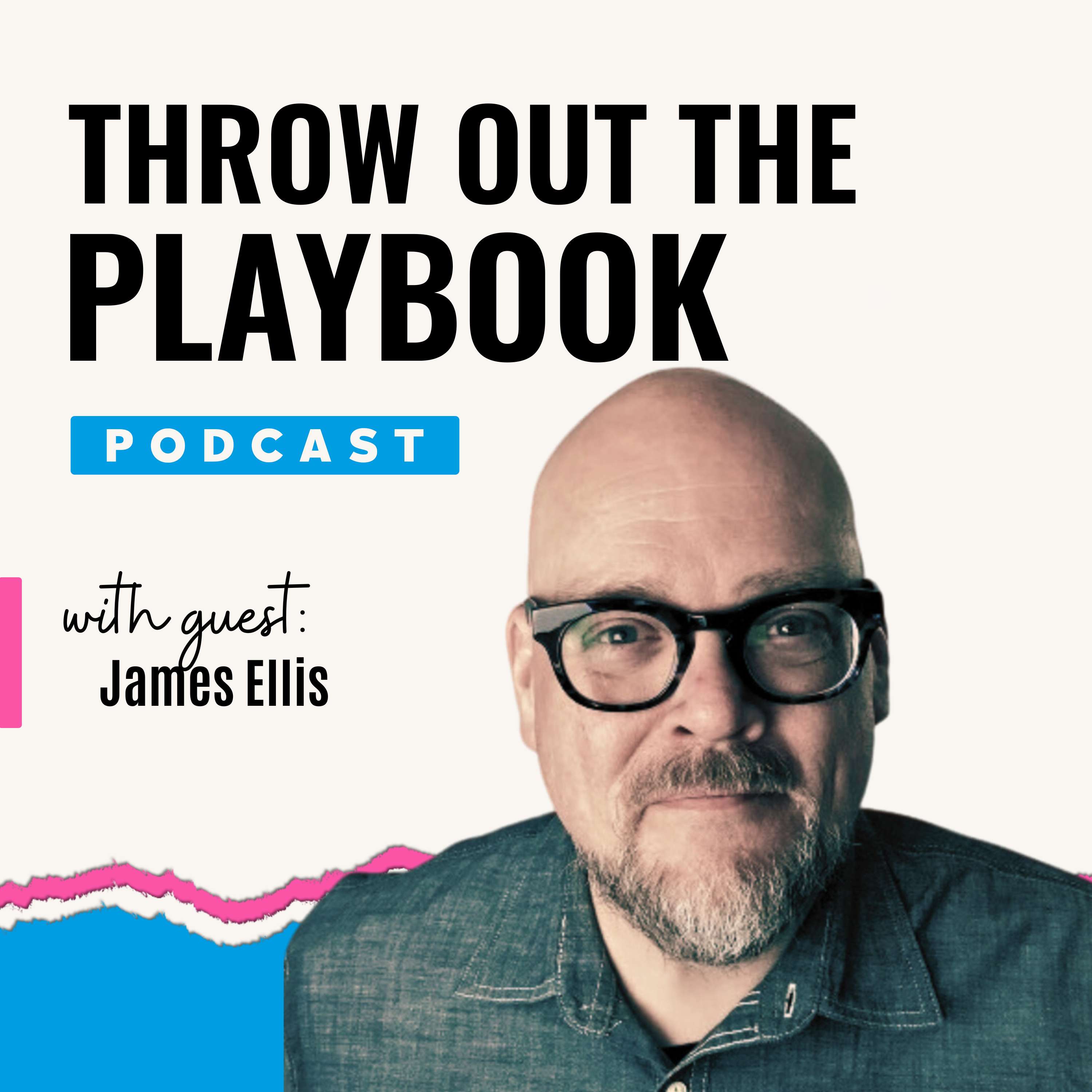#29: The Future of Hiring: Why Tech Alone Isn’t the Answer
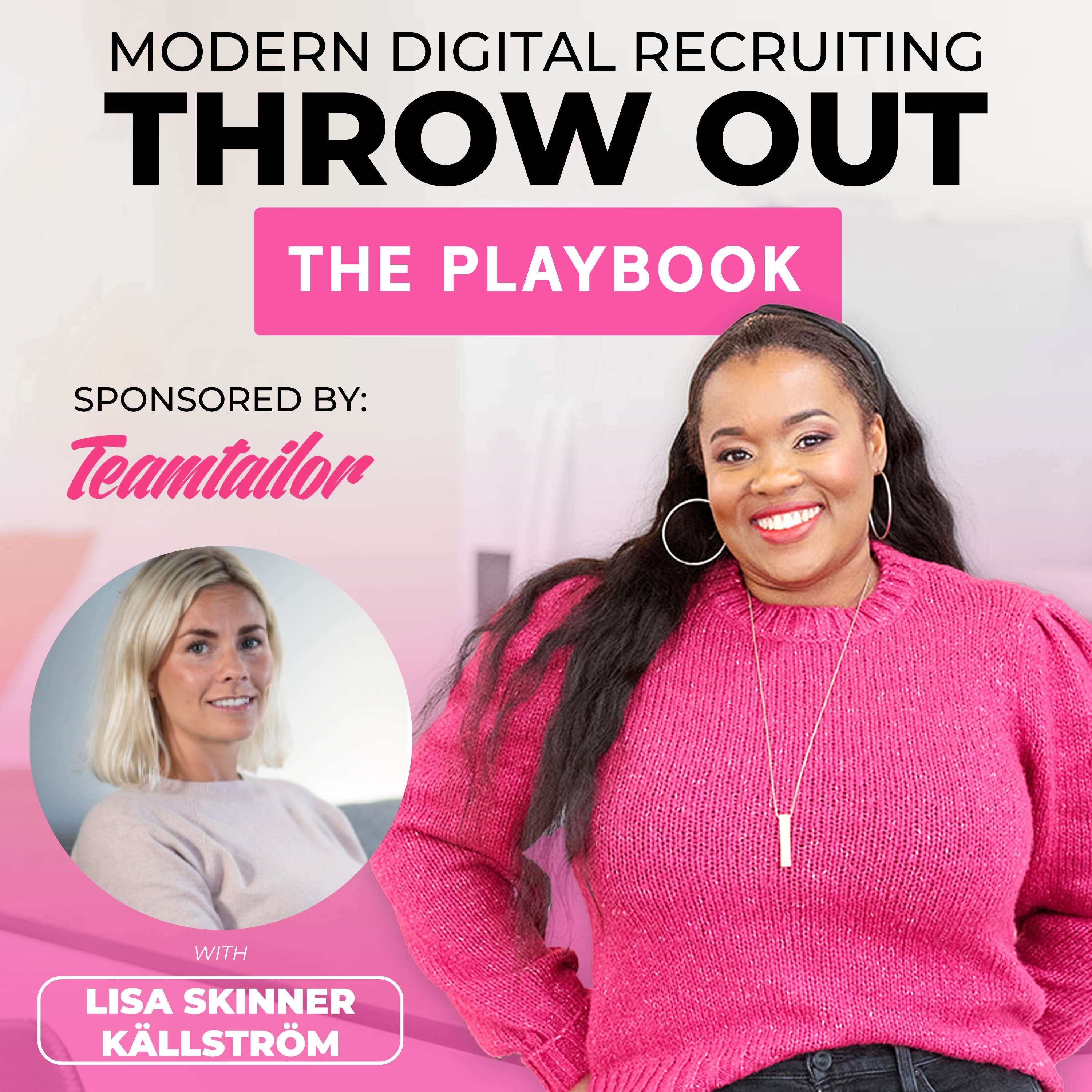
Recruitment technology has never evolved faster—but without a clear strategy, even the best tools can slow you down.
In this episode, I’m joined by Lisa Skinner, CHRO at Teamtailor, live from Transform 2025. We dig into one of the biggest blind spots in talent acquisition today: adopting HR tech without first asking the right questions.
Is your team ready for HR tech?
Recruitment technology has never evolved faster—but without a clear strategy, even the best tools can slow you down.
In this episode, I’m joined by Lisa Skinner, CHRO at Teamtailor, live from Transform 2025. We dig into one of the biggest blind spots in talent acquisition today: adopting HR tech without first asking the right questions.
From assessing team readiness to designing people-first systems, Lisa shares what it takes to make tech actually work—for your process, your candidates, and your hiring managers.
What You’ll Learn in This Episode:
• Why better tech won’t fix a broken process
• How to assess readiness across the employee lifecycle
• Common missteps companies make when implementing new tools
• What great hiring could look like 5 years from now
• How to keep candidate experience at the center of your tech strategy
Perfect for recruiters, HR leaders, and TA pros navigating the future of hiring—and looking to make smarter decisions that truly serve people, not just systems.
//TIMESTAMPS:
00:00 The Role of HR Tech in Simplifying Processes
02:58 The Evolution of Recruitment Technology
06:01 AI's Impact on Recruitment and Human Touch
08:57 Common Pitfalls in Adopting HR Tech
11:50 Future Trends in Hiring and Recruitment
14:59 Enhancing Candidate Experience and Inclusivity
****
🌟 CONNECT WITH LISA
💼 LinkedIn: https://www.linkedin.com/in/lisa-skinner-k%C3%A4llstr%C3%B6m-3942b82/
🌐 Website: https://www.teamtailor.com/en-us/demo
📹 YouTube: https://www.youtube.com/@teamtailorsoftware
🎙️ Podcast: https://www.teamtailor.com/en/happy-recruiting-podcast/
🌟 CONNECT WITH ME
💼 LinkedIn: https://www.linkedin.com/in/rhonabarnettpierce/
🦋 Bluesky: https://bsky.app/profile/rhonab.bsky.social
📸 Instagram: https://www.instagram.com/rhonabpierce/
🎵 TikTok: https://www.tiktok.com/@rhonabpierce
🌐 Website: https://www.rhonapierce.com/
💜 Leave a review on Apple Podcasts
https://podcasts.apple.com/us/podcast/throw-out-the-playbook/id1740429498
🟢 Leave a rating on Spotify
https://open.spotify.com/show/4R6bJ4JZpqOlFdYelWwsBr
Rhona Pierce:
HR tech should simplify your process, not add to the chaos. But that only happens when you start with strategy, not just with the software.
Lisa Skinner Källström:
But I think it's important to take a step back and think, are we ready? What are we trying to solve? And are the users, is our target group, are they ready?
Rhona Pierce:
That's Lisa Skinner, Team Taylor's CHRO. In this episode that we recorded live at Transform twenty twenty five, we dig into how HR and TA leaders can make smarter, more human centered decisions about technology. Lisa shares how her team uses Team Taylor's own tools, the biggest mistakes she sees companies make when adopting new tech, and her vision for a more inclusive, streamlined, and people first hiring experience. If you're navigating change, championing candidate experience, or simply trying to make hiring less chaotic and more human, this one's for you.
Rhona Pierce:
So I'm so excited to be here with you, Lisa, today. Thank you so much for being on the show.
Lisa Skinner Källström:
Thanks for having me. So exciting.
Rhona Pierce:
So before we dive in to talking about the future of work, can you tell us a little about your role as a CHRO in Team Taylor?
Lisa Skinner Källström:
Absolutely. So I've been with the company for nearly three years and an amazing journey. When I joined, we were roughly 200 people, and now we are about 500. So me and the team, we are based in Stockholm and supporting all of our locations across the globe and may doing our best in setting up everything from, like, compliance, but, of course, focusing on employee engagement and making sure that everyone is set up for success in order to be the best they can at work.
Rhona Pierce:
Must be interesting to be a CHRO for a HR tech company that's, like, helping other companies in their hiring and all of that they do. Do you guys use your own tools and the processes that you recommend to your clients?
Lisa Skinner Källström:
Yes. Definitely. It is really, really exciting and challenging as well. And I must say coming into the space, I worked with HR for a few years, but in other industries. But it's also really cool because there's such an interest from our teams as well since they're talking so much to other well, I mean, all of our customers are in nature today.
Lisa Skinner Källström:
So it's a lot of of questions from our teams. They're really curious about what we're doing internally. And, of course, using our own our own products. And it also puts, I guess, higher demands on ourselves because we want to make sure that we use it in the best possible way and know all the features and then, of course, work really close to our product team. So when there are new features, there's always trainings for us internally, of course, for our systems, but also for us.
Lisa Skinner Källström:
So to make sure that we really use it at the best best way.
Rhona Pierce:
Cool. So recruitment technology and just HR tech in general is evolving really fast. What are some of the biggest shifts that you think we're gonna be seeing in the next few years?
Lisa Skinner Källström:
Of course, AI. Cannot not mention AI. So I think that's big functionality, but also more, I think, user friendly tools because I think also with, like, new generations and I think HR becoming more tech adopters as well, that there are also more requirements. Think back in the days, I mean, all the systems I've used, at times, you couldn't be picky because you just had a system and then you just had to work with it regardless of how many clicks it takes you to to hire a candidate. So I think, like, user friendliness and then, of course, using AI as part of something which I think we will take for granted.
Lisa Skinner Källström:
I know when I talk to our product team sometimes and ask them about, like, the future and so on, I think now there's so much focus because AI is still quite new. But I know that they've said to me as well, like, in a few years, no one will even think about it because everyone's just gonna take it for granted that, of course, there's gonna be, like, AI built in.
Rhona Pierce:
Yeah. And everyone's talking about AI now, but there's so many other things. And what I like about team Taylor is, like, you're not only talking about AI. You're definitely. But you're still talking about automation.
Rhona Pierce:
You're still talking about analytics and things that are important. Yes. AI is important. Is there anything that new or anything coming in that area? Are you guys still innovating in those areas as well?
Lisa Skinner Källström:
No. But definitely and I think, I mean, all of these small features that also focus a lot on, like, candidate experience and and just, I guess, seamlessly on, like, the back end where we are internally doing our our hiring with all these, like, small tweaks and and and so on, which are, again, enhancing the candidate experience. A lot of triggers that make sure that you that the system works for you. Like, if a candidate has been in a one stage for too long, then the triggers can help you as well make sure that they move along in the system. So I think things like that that might not be visible externally, but that really help, again, focus on the candidate.
Lisa Skinner Källström:
So candidate and user, I think, are
Rhona Pierce:
Yeah. Still at the forefront of what you guys are doing. So with AI playing a larger role in hiring, there's this debate about how do we balance that with a human touch. Because, yeah, everyone's saying AI is gonna replace recruiters. It's gonna replace everyone.
Rhona Pierce:
But we know that's not true. At least that's what I believe. How do you balance, like, that as an HR tech company and just you in general as you're managing your teams?
Lisa Skinner Källström:
No. But I think, I mean, definitely, it's an important question as well. And I think this is one of the biggest changes that's been for us working in recruiting and and HR. So I can also understand that it is scary and that some people feel like, okay. If I start using AI too much, am I gonna be made redundant because then someone else can do my job?
Lisa Skinner Källström:
So I can understand that there's a fear of, like, using the technology and fear of being replaced by AI. But the way I I see it, I mean, AI should not be your decision maker. That's like, let's put that let's decide that. But then if you can use AI to improve your your process for example, there's this amazing functionality in Tintiller where you can have your video interviews transcribed by AI. And, I mean, I've been doing recruiting since 02/2001 when I started as a researcher.
Lisa Skinner Källström:
And, I mean, anyone who's done recruiting, regardless if it's that many years or or less, just that possibility, not having to take notes.
Rhona Pierce:
Exactly.
Lisa Skinner Källström:
Just being able to listen and be present in an interview. I mean, just that thing is is just amazing. So I try to think about AI. Okay. But how can I and the team and any recruiter, what can I do with the time that AI saves?
Lisa Skinner Källström:
And in that case, if you're talking about an interview, then it's giving another level of experience to the candidate because you're fully present. But then in other functionalities like helping you summarize a series or or helping suggesting suitable candidates or helping you write the job ad, it doesn't mean that you just post a job ad without sort of reflecting. But it's more like it's saving you time to do spend your time doing other types of work, like engaging with hiring managers, maybe coaching them on different things or or or so on. So I see it more as a tool for recruiters to do other types of work, if that makes sense.
Rhona Pierce:
Yeah. And it's a lot of the conversations that I've been having today. As I've been, like, talking to everyone here on the floor at Transform, I've been asking them, and people have said what you said. Like, AI for me is not a decision maker, but it's I'm seeing it as I can save time with this and all the things that we've always wanted to do as recruiters because we always have all of these ideas of what we need to do and how to improve our process, but there was no time. Things like you mentioned, having to, like, remember an interview because how do you stay engaged with someone on a video interview and take notes and all of that?
Rhona Pierce:
Now you don't have to worry. For me, that was a game changer when I started using tools like that because it's like, oh, I can focus on the person. I can focus on the questions. Right. The time that it saves me because now after an interview, I'm not scrambling to write down everything to remember to k.
Rhona Pierce:
Makes a few. I can use it for more strategic type
Lisa Skinner Källström:
of things.
Rhona Pierce:
So that that's been the consensus here. And I love that because if you look online, you'll see recruiters are going away, and recruiters are saying, maybe some of our tasks are going away, but we're stay the companies that really believe in doing this the right way, we're staying around. We're just doing the strategic work that we've always wanted to
Lisa Skinner Källström:
do. No. I agree. And, I mean, you mentioned the analytics function as well, just being able to dive into that and just having that type of conversation as well based on on data instead of doing your notes or so on. So there's a lot of opportunity, I think.
Lisa Skinner Källström:
But then, of course, it should be you should use it with with the care and respect and really understand how to use it, of course.
Rhona Pierce:
So what do you think companies get wrong when adopting new HR tech?
Lisa Skinner Källström:
Maybe not having thought about the purpose. Why do we want to get into, like, HR tech? Sometimes it's my experience is like, okay. We we want to because we have to, and maybe not having taken time identifying, okay, but what area? Because, I mean, there if you just look at the whole, like, employee life cycle, you can there's systems for, like, every part.
Lisa Skinner Källström:
And maybe thinking about, okay, but where are we ready to implement? Is it the initial? Is it the onboarding, preboarding? Is it the hiring? Is it engagement?
Lisa Skinner Källström:
What what are we trying to solve? So maybe going back to the drawing board and thinking again, what is the major problem? What is our main task? What problem do we need to solve? So I think that's one thing, but then also understanding the readiness
Rhona Pierce:
Yeah.
Lisa Skinner Källström:
In the company. And, again, it might be if it's only HR using the tool, then maybe it's one thing, but also trying to think about, okay, but are the users if you're gonna engage hiring managers or any type of manager, are they ready? Is it a good time in the year for them also to to learn something new and and adopt this tool? Because I think sometimes we in HR, we're so good at just, like, trying to solve our own challenges, and we want to do a project and so on. But I think it's important to take a step back and think, are are we ready?
Lisa Skinner Källström:
What are we yeah. Again, what are we trying to solve here? And is our are the users is our target group, are they ready?
Rhona Pierce:
That's very important because it's like very few of the softwares that we use in HR are only for us. Exactly. Most of them, we interface with candidates, with hiring managers, with other departments. So it's very important to yeah. Do we know what we're doing and why we're doing this, why we're getting this?
Rhona Pierce:
And is everyone else ready for it? Because it can only be you. And I think that's something that is missed a lot of times, especially like as you're implementing the software, it's on you to bring in the people that need to be part of the implementation.
Lisa Skinner Källström:
Exactly.
Rhona Pierce:
Like your HR tech vendor can give you suggestions, but they don't know your company. So it's on you to have that plan before you even engage them in an implementation. No,
Lisa Skinner Källström:
I agree. And also thinking about like, okay, the rest of the tech stack, because I think in HR, I mean, we maybe just want to be at the forefront and say like, hey, we found this tool, but also think about engage with IT as well and say, hey. We found this tool. Is it something that would work for us? What do we want to integrate it with?
Lisa Skinner Källström:
If we're using Slack or any other type of tool, will this work? So it's not like ending up buying 10 different systems, I guess. So that's important.
Rhona Pierce:
Which is what happens a lot. And I I hear it a lot as I talk to recruiters. And in my own experience, you get to a company. I remember one of the last companies I was in leadership of recruiting, you get in, and it doesn't matter how much you ask in an interview. When you get there the first day, you see, wow.
Rhona Pierce:
You guys have a ton of systems and some overlap with each other. It's like different people within HR are like, oh, I need this. I need this. I need this. And we don't necessarily know, like, oh, we could have this tool doing this thing, and we don't need all of these different tools.
Lisa Skinner Källström:
No. I agree. So we should be better become more, like, knowledgeable as buyers as well, I think, will help us help us become more strategic as well.
Rhona Pierce:
Yes. If we fast forward five years now, let's talk about future, which is something we like to talk about on this podcast. Where do you see hiring going in the next five years?
Lisa Skinner Källström:
Interesting. So transform 2030. What are we doing then? Good question. But I think, again, a lot of maybe the functionality that are new now is something that we're gonna just take for for granted.
Lisa Skinner Källström:
It would be really interesting to see, like, the DNI perspective as well in recruiting. Is that something that we have solved? Again, is that something now that we don't have to think about? Because if we like, in the job ads and so on, are the bias are we able to remove any bias from the process, for example? So that's something we've been talking about as well, I think, for so long.
Lisa Skinner Källström:
So I I hope that that's something that we can just make sure that we just automatically have a really not friendly process, but an inclusive process.
Rhona Pierce:
Yeah. I think we've been talking about it for a long time, but and I agree with you. I think we kind of, like, move on to the next thing, but we need to get to a point where, just like you were saying, AI is gonna be in in a future, something where you just it's a given. It's like, you no one talks about, like, oh, our our software works on the Internet. Well, of course it does.
Rhona Pierce:
It's like, why would it not? So we
Lisa Skinner Källström:
have it in an app.
Rhona Pierce:
Yeah. Exactly. We we have to get there with AI, but there's also very important things that we skipped over, I think, that we should really get back to because especially as we integrate newer technologies like AI and things like that, DEI is still an issue that we're the ones teaching AI what to do. So if we haven't evolved that, we need to that needs to get into something that's a given, like, yeah. Why are we even talking about DEI?
Rhona Pierce:
That's how we do it type of thing.
Lisa Skinner Källström:
No. I think so. And then something as well. I mean, I'm I'm based in in in Sweden, and, of course, depending on the job market and so on. But when there is a lot of availability on the market, I think that the candidate experience, it's also something we've talked about for a long time.
Lisa Skinner Källström:
But again, I'm amazed. Like, when when we hear candidate stories and and, like, people in the network and so on where they've been, like, ghosted by companies and so on, I think at some point, that also needs to stop. And then, again, finding different functionalities in the system where it should be, like, impossible for you not to get back to a candidate and and and not give feedback and and so on. So I would like to see that's something I would like to see in the future as well. Like, an inclusive and and a really good candidate experience.
Rhona Pierce:
That would be amazing. It's like it's so cool because if you've managed recruiting teams, I'm sure you have as I have, you hear, I didn't mean to ghost this person. They just got lost in the ATS. I would love, like, wish list item where it's like so it's impossible to get lost in the ATS where it's like, okay, ATS is telling you, you have ghosted this candidate. You have not replied to this candidate.
Rhona Pierce:
Do something. At that point, it's a human choice and not like it got lost, but it does happen. It it works. So, yeah, I like that future prediction. Exactly.
Rhona Pierce:
So finally, where can people learn more about team Taylor and just what you you guys are doing?
Lisa Skinner Källström:
I guess follow us on on LinkedIn. We are a global company. So if you follow us, I mean, you will get a lot of different content from all of our different sort of regions because there's a lot going on. And, I mean, speaking of different sort of trends and and so on, I guess there's always kind of similar challenges, but there are also a lot of, like, local opportunities and and local topics. Like in The EU, for example, in in Europe, we're gonna have, like, this big pay transparency directive, which, of course, is very, very close to hiring.
Lisa Skinner Källström:
So LinkedIn, you will get a lot of, like, different local flavors of how Tin Tailor is working with the market. We also have a podcast, something to mention, where we invite different guests and and really sort of get nerdy on different parts of the hiring process, talk only about sourcing or only about interview questions so on. So, yeah, I think so. And then it's possible if you're interested as a candidate, we have a functionality where you can connect with us if there's a job, if you're looking for a new job or if you're just interested to see what's going on in the company, but there's not a position that suits at the moment, then you can connect, and then you will get notified if anything sort of comes up. So a lot of different ways, I would say.
Rhona Pierce:
Yeah. Yeah. And I know I said it was the last question, but
Lisa Skinner Källström:
I Yes. Go ahead.
Rhona Pierce:
Thought of of a different one. What is one recruitment trend that you want to go away? Like, we need to stop this right now. Wow.
Lisa Skinner Källström:
That's a hard question. But could it be just the AI thing just talking about, like because it is I mean, it's been again, it feels like these topics when they when we start talking about it in our community, it just becomes I mean, of course, because we we need to discuss it because it's new and and and so on. But that's yeah. That's the thing. I would like us to stop what HR talks about, like AI and us trying to be experts at it.
Lisa Skinner Källström:
I would like to see more because I don't think AI should go away, but maybe more that we invite, like, the technology side and and really make sure that we work together. Because sometimes, I guess, when we're talking about it, trying to explain and understand and and so on, we should invite the other side or or people from the tech side to make sure that we can work together and and maybe for us to give sort of input as well on how it works for for us.
Rhona Pierce:
That's a really good approach because I think what we've been doing, and I myself am guilty of this.
Lisa Skinner Källström:
Me too.
Rhona Pierce:
I think because I come from a technical background, I'm talking about because I'm a software engineer by trade.
Lisa Skinner Källström:
Oh, nice.
Rhona Pierce:
So I talk about AI and stuff, and I get excited on that side. But I have to, like, sit in my in my HR side and my TA side and be like, no. We are not the people that are, like, all of a sudden now in charge of technology. And it's a big like, some places I mean, I saw an article recently where now they're trying they're saying some companies, the CHRO is gonna be in charge CHRO AI in charge of AI. And it's like, are we really the best suited to be in charge of technology, or should we be doing what we do best, which is bring the humans together, bring the right people in the room to have the conversations?
Rhona Pierce:
And, we're their guiding. We're we're part we're at the table. I'm not saying we shouldn't be at that AI table. I don't think we should be waiting it.
Lisa Skinner Källström:
No. No. And I mean, think it's important that we of course, we need to understand and and we need to adopt and we need to be curious and and brave to try it. But, again, I think sometimes I get fed up when I hear myself trying to explain to others or or it's just like a panel of HR people explaining AI. Then, I mean, of course, you have the background, you have a more legit speaker about it.
Lisa Skinner Källström:
But I think, I mean, bringing the right expertise as well because that will help us be more educated as well.
Rhona Pierce:
And that's really our strength. We are the people people. Exactly. We bring the people into the company. We keep the people in the company and we make sure their experiences.
Rhona Pierce:
So like, let's lean on our strength and let the experts that we've spent so much time bringing in help us. Like, let's partner. So yeah. So this has been a lovely conversation. Thank you so much for joining us
Lisa Skinner Källström:
on the pod It's really great. Thank you so much for having me. Thanks.
Rhona Pierce:
Thanks to Lisa for being on the show. This is the final episode of Throw Out the Playbook as you know it. But don't worry, we're not going anywhere. The show is evolving. The next chapter of the show is called Workfluencer, and it's about something bigger.
Rhona Pierce:
It's about how professionals are using their voice to lead, disrupt, and reshape work from the inside. More on that very soon. If this episode sparked new ideas or challenged how you think about HR tech, share it with a colleague, leave a review, and subscribe for more conversations like this. Thanks for listening, and I'll chat with you next week.






